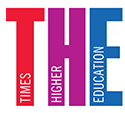Equity challenges loom, but solidifying evidence of value brings academic stature to science of partnering with the public
After a decade of steady growth in the concept of citizen science, several US universities are placing big bets that the approach is hitting critical breakthroughs in cost savings and capacity for discovery.
The front-runners include North Carolina State University, Arizona State University and Cornell University, all of which have hired faculty to systematically push ways of infusing research with public input.
The institutions have positioned themselves out front at a moment of fast-accumulating evidence that average citizens can make meaningful contributions to science – yet amid lingering concerns about data accuracy and reliability, and more substantial fears about undermining social equity.
Academic sceptics remained, but the evidence of net value has now become overwhelming, said one leading practitioner, Darlene Cavalier, professor of practice at Arizona State. “That ship has turned for sure,” Professor Cavalier said.
“It is a legitimate, rigorous scientific methodology,” said another, Lea Shanley, director of the International Computer Science Institute, a private research partner of the University of California, Berkeley.
Citizen science is an age-old practice that gained a foothold in US government policy after the 2010 earthquake that killed at least 100,000 in Haiti. That experience made clear to policymakers in the US and beyond that data delivered through social media could make a meaningful difference in coordinating emergency responses.
From there, activists pushed White House conferences promoting citizen involvement in scientific studies, congressional authorisation of such work in federal agencies, and its integration into mainstream research grants. “Citizen science has exploded across the federal government – it is being used in all quarters now,” Dr Shanley said.
Well before 2010 brought it governmental attention, the approach had been gaining popularity among researchers across a range of academic fields who saw how eager hobbyists could save them large amounts of time and money. Early adopters included astronomers needing help searching the heavens for unusual objects, and ecologists surveying environmental conditions worldwide.
The vast menu of other applications includes city dwellers tracking heat islands, hikers counting honeybees, gamers diagnosing malaria infections and solving the structures of protein molecules, and thousands of other people monitoring water and air quality, predicting successful pharmaceuticals, planning trip itineraries, screening airport baggage and exposing human biases.
Participation soared anew during the isolation of the Covid pandemic. Major successes include social media users helping to point out the loss of taste and smell as common early symptoms of infection.
The past year’s heightened attention to racial equity also brought citizen science new scrutiny of the potential biases associated with volunteer-centric models that can privilege those with the time and resources to participate. Professor Cavalier joined more than a dozen other experts this summer calling for researchers to prioritise solving that problem.
The “new edges of scientific discovery and actionable science lie in inclusion: the addition, without assimilation, of diverse voices, values, perspectives, lived experiences and identities”, the group wrote in Science magazine.
The recognition is part of a solidifying strategy of treating the cultivation of citizen science as its own science, with its own norms for training, and standards for engaging the public and vetting its contributions.
Steps in that direction include North Carolina State in recent years making citizen science a central element in a cluster hire of faculty concerned with public engagement. UCL has begun what it believes to be the first master’s programme in citizen science. And Arizona State has begun running a pilot version of an introductory course in citizen science that it expects to offer to students across its campus, with the idea of making public inclusion skills a fundamental component of numerous fields of study.
Despite the nation’s stifling climate of politically driven suspicion, citizen science has remained broadly popular in Washington, from its initial rise in the Obama presidency through its endorsement by the Trump administration. The government still needs to take additional steps that include revising rules that hinder federal agencies that try to collect scientific data and information from the public, and boosting research funding, Dr Shanley said.
Government-wide cooperation seems likely to persist, said Joel Gurin, an Obama-era White House adviser on consumer services who now heads the Center for Open Data Enterprise, an advocate of making government data more publicly accessible. From its early days, Mr Gurin said, the Biden administration has been signalling growth of the “very bipartisan way” in which the government has embraced citizen science.

0 Comments